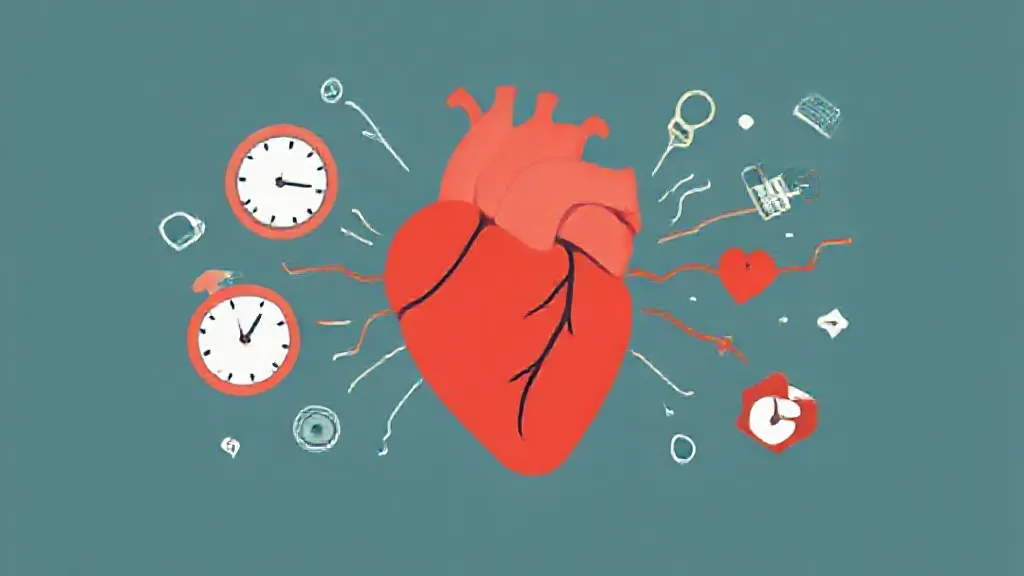Stress is a natural response to challenges and threats, but when it becomes chronic, it can have profound effects on various aspects of health, particularly on cardiovascular health. The heart, as a vital organ, is intricately linked to our emotional and psychological states. Consistent stress can lead to a cascade of physiological changes that may increase the risk of heart disease, hypertension, and other cardiovascular conditions.
The Physiological Mechanisms of Stress
When an individual experiences stress, the body activates its fight-or-flight response, releasing hormones such as adrenaline and cortisol. These hormones prepare the body to respond to perceived threats by increasing heart rate, blood pressure, and energy supplies. While this response is beneficial in short bursts, chronic stress keeps the body in a heightened state of alert, which can lead to wear and tear on the cardiovascular system.
Over time, elevated levels of cortisol can contribute to inflammation and damage the lining of blood vessels.
Chronic Stress and Hypertension
One of the most significant impacts of consistent stress is the development of hypertension, or high blood pressure. Stress can cause the blood vessels to constrict, increasing resistance to blood flow and putting additional strain on the heart.
Studies have shown that individuals with chronic stress are more likely to develop high blood pressure, which is a major risk factor for heart disease and stroke. Managing stress through lifestyle changes and relaxation techniques can be crucial in controlling blood pressure levels.
The Role of Lifestyle Factors
Lifestyle choices play a critical role in how stress impacts heart health.
Poor dietary habits, lack of physical activity, and substance abuse can exacerbate the effects of stress on the heart. For instance, individuals under stress may turn to unhealthy foods, leading to weight gain and increased cholesterol levels. Regular exercise, on the other hand, is known to reduce stress and improve heart health by strengthening the cardiovascular system and enhancing mood.
Mental Health and Heart Disease
There is a well-established link between mental health and cardiovascular health. Conditions such as depression and anxiety can contribute to chronic stress, creating a vicious cycle that negatively impacts heart health. Research indicates that individuals with depression are at a higher risk for heart disease, emphasizing the importance of addressing mental health as part of a comprehensive approach to cardiovascular wellness.
The Importance of Stress Management Techniques
Effective stress management techniques can significantly mitigate the adverse effects of stress on the heart. Practices such as mindfulness meditation, yoga, and deep breathing exercises have been shown to lower stress levels and improve heart rate variability. Additionally, social support and strong interpersonal relationships can provide emotional resources that buffer against stress, promoting better heart health.
Long-term Consequences of Ignoring Stress
Ignoring the effects of consistent stress can lead to severe long-term consequences. Over time, chronic stress can result in the development of atherosclerosis, where plaque builds up in the arteries, leading to heart attacks and strokes. Furthermore, the psychological burden of stress can lead to unhealthy coping mechanisms, further compromising heart health.
Recognizing and addressing stress early can prevent these serious health issues.
Historical Perspectives on Stress and Heart Health
Historically, the understanding of stress and its impact on health has evolved. Early studies in the mid-20th century began to link stress with heart disease, leading to further research into the psychosomatic connections between mental and physical health.
Today, the field continues to explore how stress influences not only heart health but overall well-being, highlighting the need for integrated approaches to healthcare.
Conclusion: A Holistic Approach to Heart Health
In conclusion, consistent stress has a significant impact on heart health, influencing various physiological processes and contributing to the development of cardiovascular diseases. A holistic approach that incorporates stress management, healthy lifestyle choices, and mental health support is essential for maintaining heart health.
By understanding the relationship between stress and heart function, individuals can take proactive steps to safeguard their cardiovascular health and improve their quality of life.
